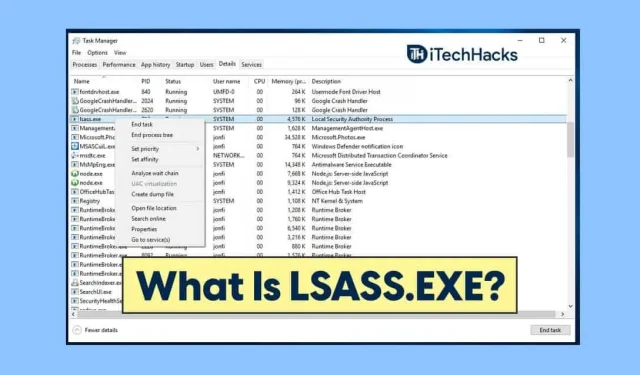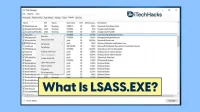LSASS, known as the Local Security Authority Subsystem Service, is a Windows process that enforces the security policy on your PC. This process is responsible for handling all password changes and generating access tokens when the security log is updated. Many users have reported that this process requires high CPU usage. So why is LSASS.exe causing high CPU usage? This process can be easily affected by viruses and malware which can cause this problem.
Let’s discuss LSASS.exe high CPU usage issue in Windows 11 and how to fix it.
How can I check if LSASS.exe is causing the problem?
Well, if you notice any performance lags or speed issues on your PC, the LSASS.exe process might be behind it. It is often reported that due to virus infection in Windows 11, LSASS.exe high CPU usage issue can occur. To check if LSASS.exe is causing the problem or not, follow these steps:
- In the Start menu, find” Task Manager”and open it. You can press the key combination Ctrl + Alt + Del to open Task Manager on your PC.
- Navigate to the Processes tab in Task Manager. Find the LSASS.exe process here .
- Check if the process is consuming a lot of CPU resources or if it is outside of the C:/Windows/System32 path . If you notice any of these, it means that LSASS.exe is infected with a virus and is causing the high CPU usage issue.
Fix LSASS.exe High CPU Usage Stopped Issue in Windows 11
If you are facing this issue, then you should follow the steps given below to resolve this issue.
Run a virus scan
You can scan your computer with an antivirus to check for a virus infection. You can use Windows Defender, which is built-in virus protection software from Windows. Prefer to use Windows Defender to scan your computer for viruses or malware.
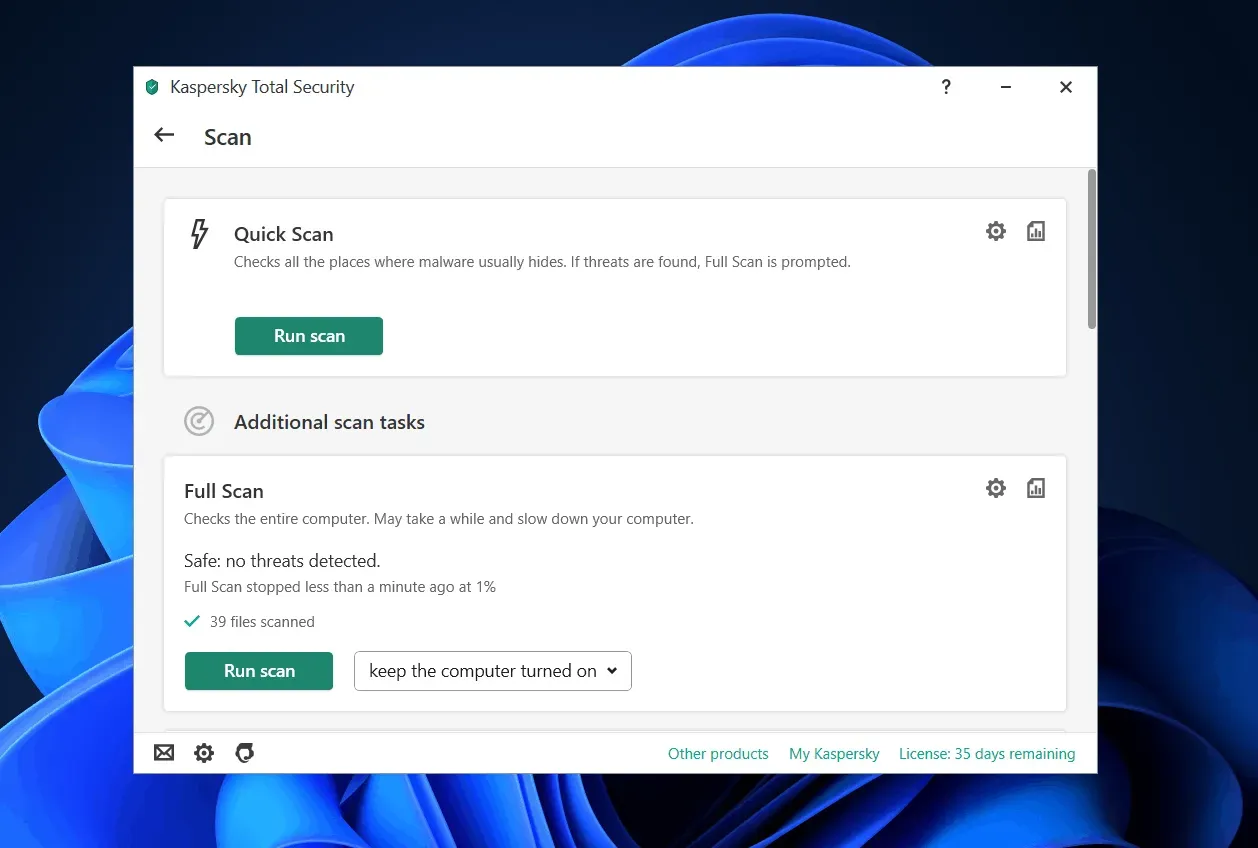
However, if you are using any third party software on your PC, you may prefer to scan your computer for viruses. Scan your computer for a virus and eliminate the virus infection, then check if you are still experiencing the problem or not.
Update your Windows
You can try updating Windows 11 to fix this issue. Often this problem can occur due to errors in the system. Such errors can be fixed by installing a Windows update on your computer. To update Windows, follow these steps:
- Go to your PC settings . You can do this by pressing the key combination Windows + I.
- In Settings, click Windows Update on the left sidebar.
- Now on the right click “Check for updates”to start checking for updates.
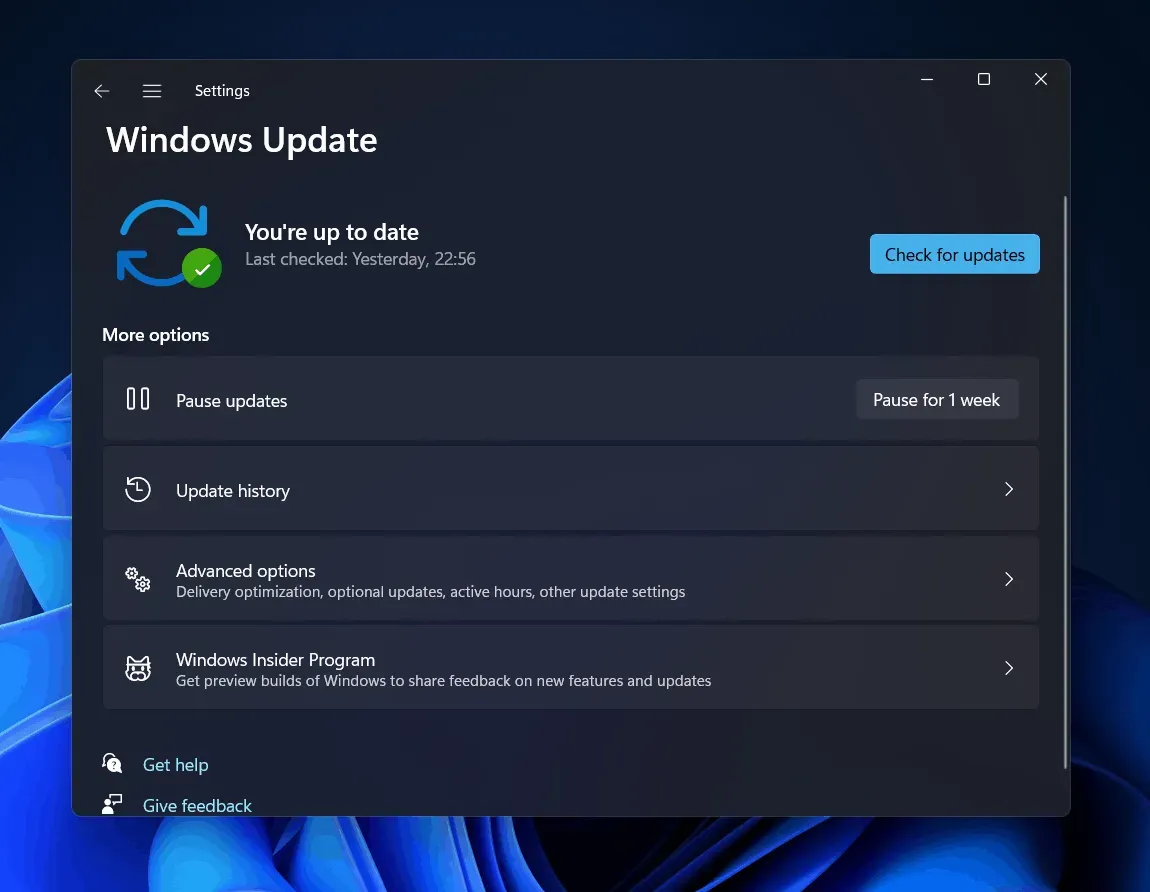
- Install any updates found, and then restart your computer.
Now check if LSASS.exe is consuming a lot of CPU resources or not.
Perform a System Restore
Even after trying all the above fixes, if you are still facing the problem, the last option would be to perform a system restore. Please note that this method will only work if you have previously created a restore point. If you have not created a restore point before, this method will not help you. If you have created a restore point before, follow these steps to perform a system restore.
- Open the Start menu by pressing the Windows key or clicking the Start icon .
- From the Start menu, find” Create a restore point”and open it. This will take you to the System Protection tab in the System Properties application .
- Here, click System Restore to open the System Restore window .
- Click Next on the System Restore window to move forward.
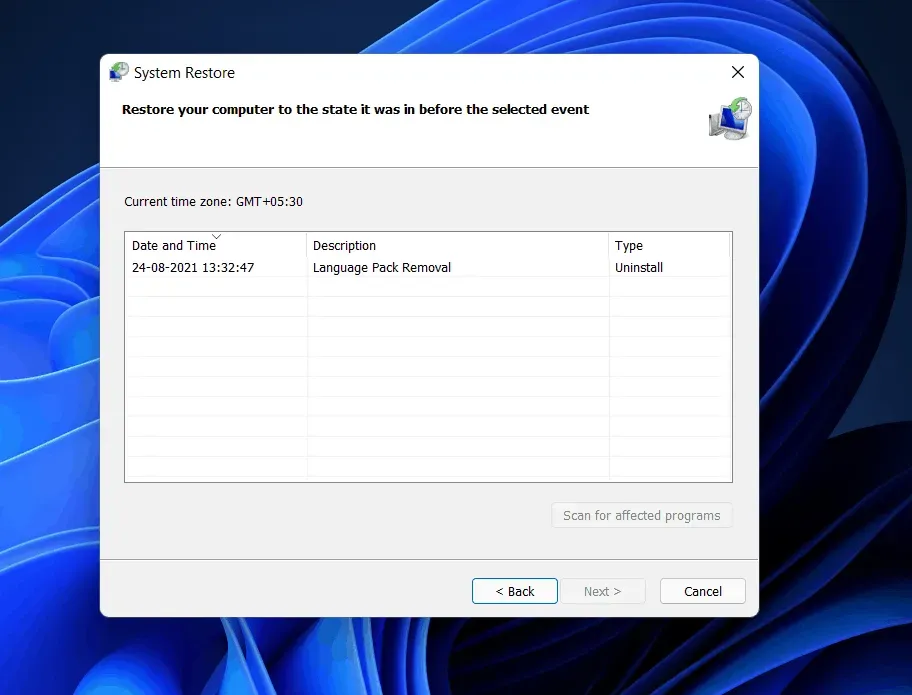
- You will now be prompted to select the last restore point you created. Select a restore point and then click “Scan for vulnerable programs” to check what changes will be made to your system.
- This will show you which apps and data will be removed or added to your system after getting back using System Restore. Now close the Vulnerable Programs Scanning window by clicking the close button .
- Click “Next”to continue with the system restore process. Now follow the instructions on the screen to perform a system restore.
Final words
If you are facing the LSASS.exe high CPU usage issue, the steps mentioned in this article will help you solve it. By following the steps above, you should be able to resolve the issue you are experiencing. We hope this article will help you resolve the high CPU usage issue of LSASS.exe in Windows 11.
